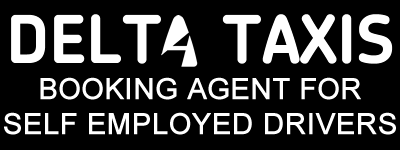NEWS
16.01.2026 - Settle (Operator Fee) Payment Deadline Amendments
Following a recent credit control review, Delta will be phasing out the seven‑day grace period previously offered to drivers who paid their settle after the due date. The due date has always been the Thursday that begins each weekly settle period. Moving forward, Delta will be adopting the standard business practice of payment on the due date.
We’re grateful that many drivers already pay on time. However, we also recognise that this change may be challenging for those who have become accustomed to paying late each week. To support drivers through this adjustment, we have introduced a four‑week transition period leading up to 5th February.
As with the existing policy, payments received after the Payment Deadline will incur a £5 administration fee to cover the additional handling required. The stop list will continue to be applied the morning after each deadline.
We appreciate everyone’s cooperation as we move toward a more consistent and fair system for all drivers. This transition period is designed to give everyone time to adapt gradually. Thank-you for working with us as we make this change.
Following a recent credit control review, Delta will be phasing out the seven‑day grace period previously offered to drivers who paid their settle after the due date. The due date has always been the Thursday that begins each weekly settle period. Moving forward, Delta will be adopting the standard business practice of payment on the due date.
We’re grateful that many drivers already pay on time. However, we also recognise that this change may be challenging for those who have become accustomed to paying late each week. To support drivers through this adjustment, we have introduced a four‑week transition period leading up to 5th February.
| Settle Week | Payment Deadline | Stop List Activated |
|---|---|---|
| Thu 15th Jan – Wed 21st Jan | Midnight Wed 21st Jan | Thu 22nd Jan |
| Thu 22nd Jan – Wed 28th Jan | Midnight Mon 26th Jan | Tue 27th Jan |
| Thu 29th Jan – Wed 4th Feb | Midnight Sat 31st Jan | Sun 1st Feb |
| Thu 5th Feb – Wed 11th Feb | Midnight Thu 5th Feb | Fri 6th Feb |
As with the existing policy, payments received after the Payment Deadline will incur a £5 administration fee to cover the additional handling required. The stop list will continue to be applied the morning after each deadline.
We appreciate everyone’s cooperation as we move toward a more consistent and fair system for all drivers. This transition period is designed to give everyone time to adapt gradually. Thank-you for working with us as we make this change.


